Lea Bridge - Wood & Canal
w/e 13 May 2018
All of this week's pictures were
taken with a Kodak DX6490
Lovely weather over the early Spring Bank Holiday
at the beginning of May drew lots of visitors to the popular
tourist spots in Derbyshire and even on the Tuesday after Bank
Holiday Monday Cromford, especially around the mills, was heaving
with people and parking was at a premium.
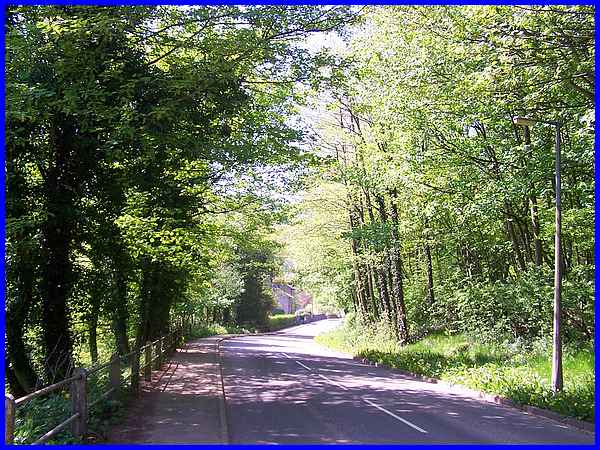
Less than two miles away however we found a parking spot right
outside Smedley's Mill Shop at Lea Bridge and, after crossing
the bridge over the Lea Brook, walked for about a quarter of
a mile along Lea Road towards Cromford passing Lea Wood Cottage
and Lea Wood House (seen here in the distance) to a bend in the
road.
|
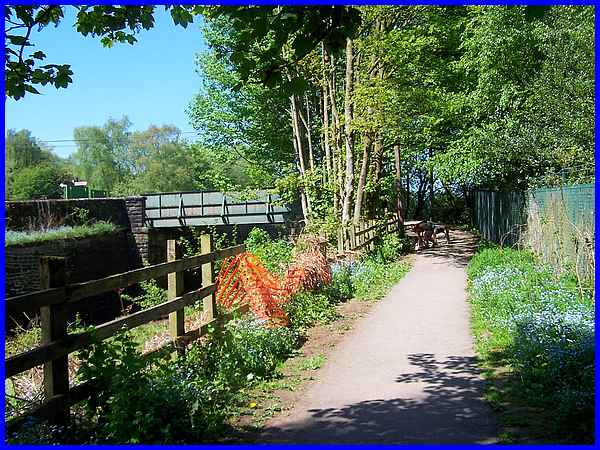
At the bend we turned left to follow a footpath that took us
first over the River Derwent and shortly after that over a railway
bridge to the Cromford Canal.

At the side of the canal is a blue plaque that says the canal
was opened in 1794, was engineered by William Jessop and Benjamin
Outram and ran 14.5 miles from Cromford to Langley Mill. On the
other side of the canal, old buildings now house an Information
Centre behind which the High Peak Trail leading up to Black Rocks and Middleton Top.
|
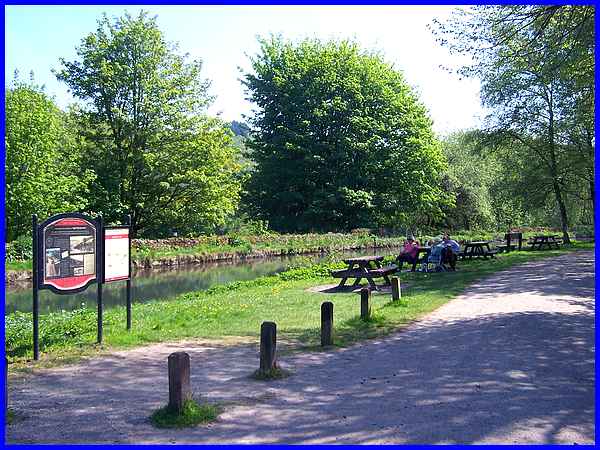
This area is called High Peak Junction where, as well as the
Information Centre, there are public conveniences picnic tables
and an interpretation board detailing the area's industrial heritage.
Back in 2009 we walked between Cromford and Lea Wood (link) and the next part of this walk follows
some of the same route.
|
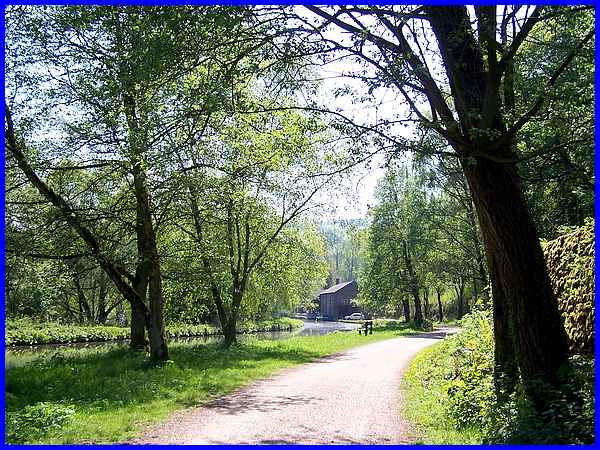
Both the 2009 walk and this one took us towards and beyond the
Wharf Shed where coal was transferred between canal boats and
railway wagons.
|
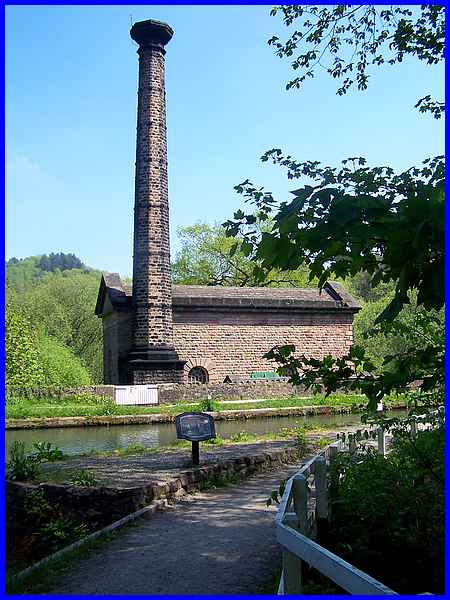
A little further on is Leawood Pumphouse of 1849. This Grade
II* listed building with its 29m chimney contains a Boulton and
Watt single action steam powered beam engine from the same date
that was used to raise water from the River Derwent into the
canal. The engine was made at the Milton Ironworks by Graham
& Co.
|
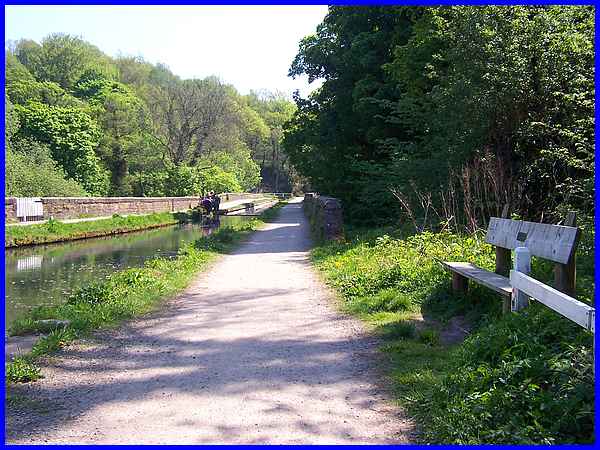
Adjacent to the pumphouse is the Wigwell Aqueduct that carries
the Cromford Canal over the Derwent which is about 9m below.
The aqueduct was built in the early 1790s under the supervision
of engineer William Jessop but by the end of 1793 cracks had
appeared in the structure for which Jessop accepted responsibility
and agreed to remedy at his own expense.
|
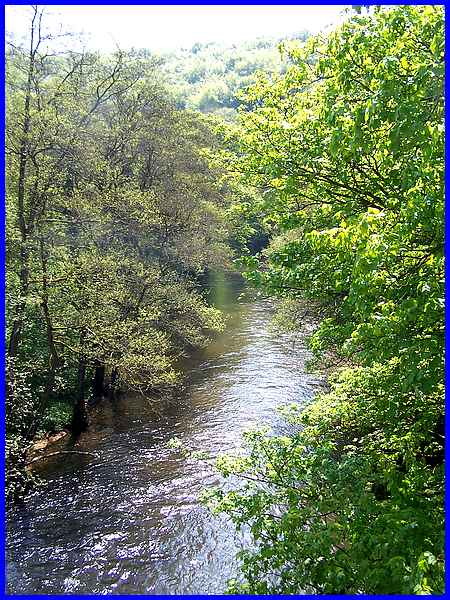
Seen from the aqueduct this is a view of the River Derwent as
it flows to the south.
|
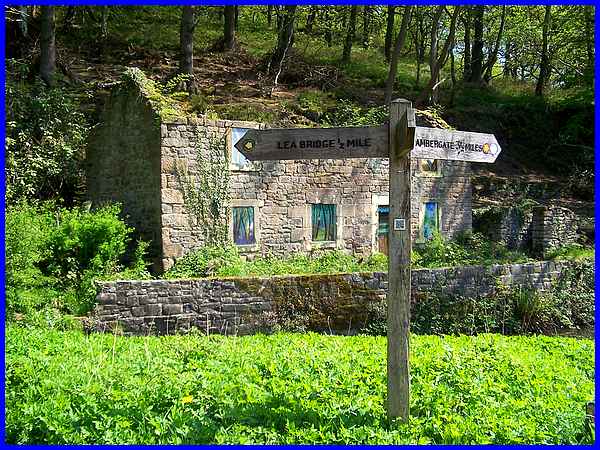
At the southern end of the aqueduct is the Leawood arm of the
canal. This was built in 1802 to facilitate movement of goods
to and from the leadworks and mills at Lea Bridge but by 1910
ownership had transferred to the Midland Railway and its closure
followed. A cottage at the junction of the canal and the Leawood
arm probably for the lock keeper also dates from about 1802 and
is Grade II listed even in its derelict state. Although standing
derelict for several years the roof didn't fall in until 1997.

After crossing the aqueduct we turned to follow the route of
Leawood arm and another bridge took us back over the railway
line again from where we could see the entrance to the Leawood
Tunnel and then on the opposite side were views across the valley
to the river.
|
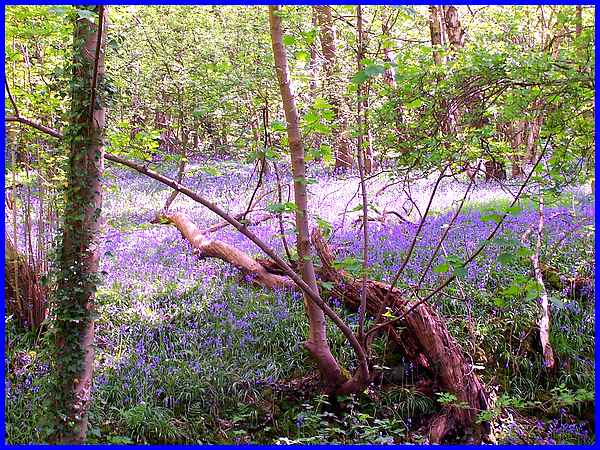
The route back to Lea Bridge is through Lea Wood and follows
the towpath of the disused arm but on the other side of the former
canal the wood was full of bluebells for much of the way.
|
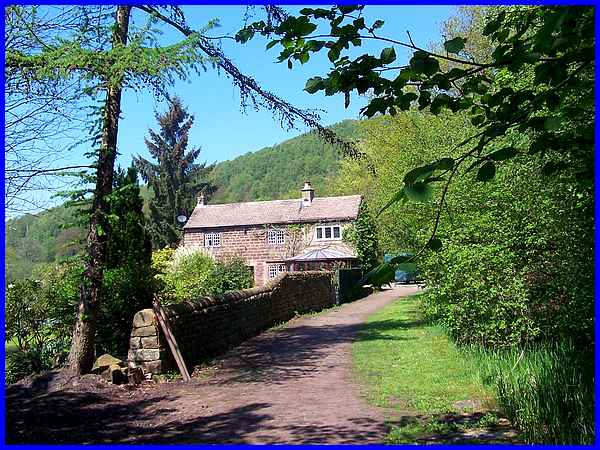
The Leawood arm ended at a wharf but we continued beyond Wharf
Cottage and the end of the disused canal along the footpath back
to Lea Bridge passing through the Derbyshire Wildlife Trust's
Nature Reserve in Lea Wood.
|

